Sometimes, authors write paragraphs that simply don’t flow correctly. Every sentence sounds the same, and the story becomes monotonous to read. To readers, this can become extremely annoying. But how do you fix the issue? Usually, varying sentence openers and adjusting their lengths will do the trick.
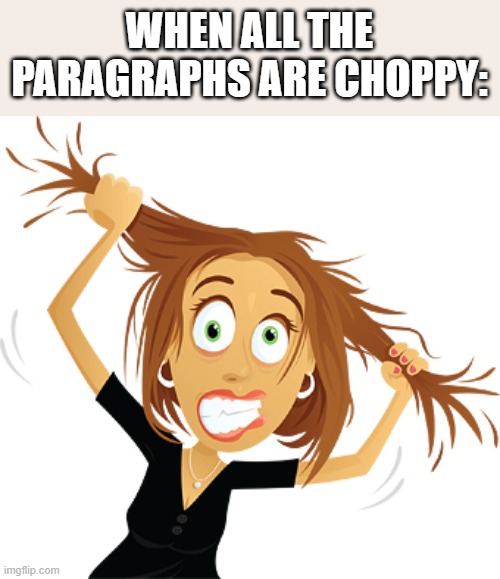
Subject Openers
There are several different types of sentence openers, but most authors tend to gravitate towards the most common. They love their subject openers. A subject opener occurs when an author starts a sentence with a subject, usually a noun. In the sentence, “The dog barked,” the phrase “the dog” is the sentence’s subject. Thus, this sentence has a subject opener.

Prepositional Openers
The second type of sentence starts with a preposition. A preposition is a word that controls, and usually precedes, a noun or pronoun, creating a relationship between that noun or pronoun and another word in the sentence. Often, prepositions tell the “position” of something in space or in time. For instance, “the man on the train groaned,” “she was still hungry after dinner,” or “the plane flew above the stadium.” For prepositional phrases to be openers, they simply need to open the sentence: “In the afternoon, she finally woke up.”
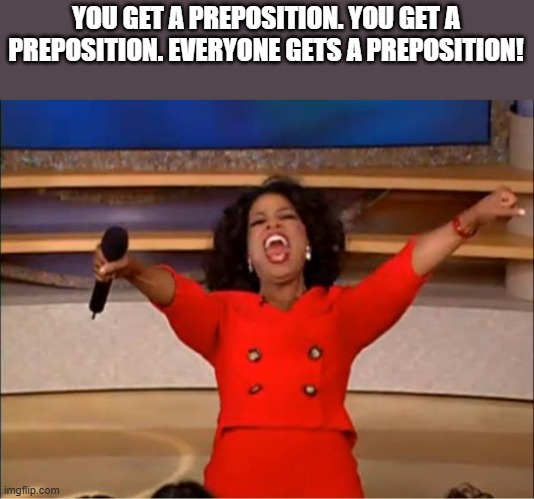
-Ly Adverbs
-Ly Adverbs make up the third type of opener. Usually, these adverbs demonstrate how a verb is performed, such as “angrily,” “quietly,” and “quickly.” An -ly opener, as always, occurs at the start of the sentence: “Gently, she rubbed his back.” However, not every word that ends in an -ly is an adverb. Some words, which don’t depict how a verb is performed, are adjectives. The word “lovely” is an example of this. You can’t “lovely run.”
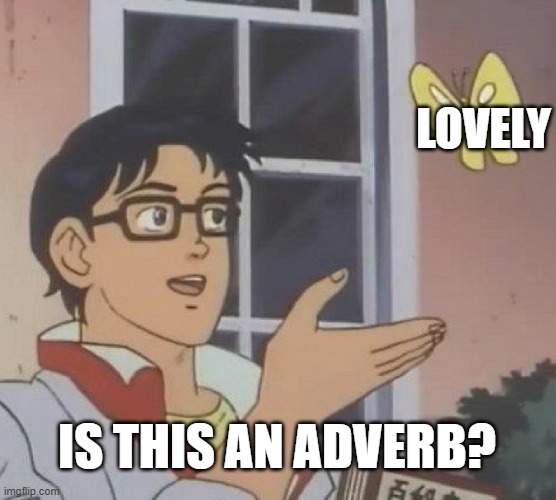
-Ing Verbs
Authors can also open their sentences with an -ing verb, such as “running.” For example, a sentence could read, “Running, she nearly tripped.” However, this sentence opener can be misused, and it often is. As the rule states, the thing directly after the -ing verb must be the noun performing the action. If the example sentence read, “Running, the sidewalk nearly tripped her,” that wouldn’t make sense. It would sound like the sidewalk was running, which, of course, would make no sense.

Adverbial Clause Openers
Adverbial clauses are the fifth type of opener. These sentences often begin with subordinating conjunctions, of which the most common are when, while, where, as, since, if, although, and because. For instance, a sentence opening with an adverbial clause may look something like this: “Because she was late, we didn’t get started on time.” Importantly, though, some words can be subordinating conjunctions or prepositions depending on the context. Take the word “before” as an example. If this word precedes a subject and verb, it’s a subordinating conjunction: “Before he went swimming, Michael chugged an energy drink.” However, if the word precedes a noun, it’s a preposition. “Before dinner, Michael chugged an energy drink.”
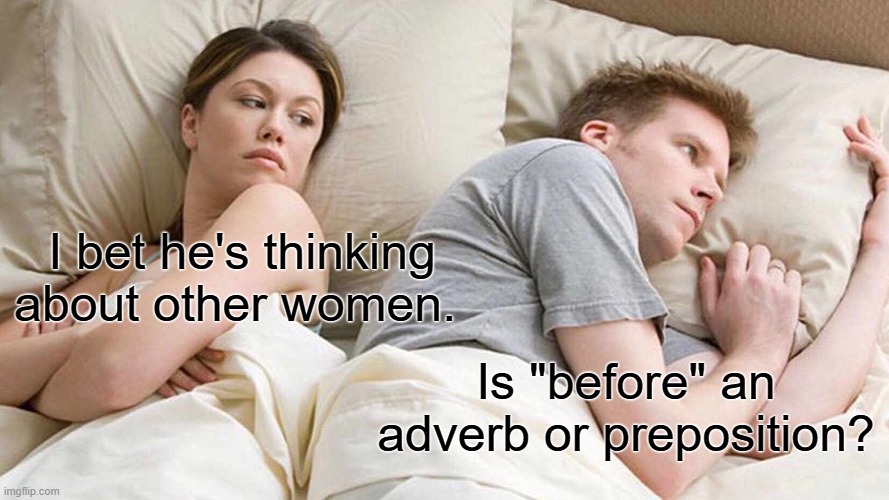
Very Short Sentence
The final common sentence opener isn’t really an opener at all, but rather, it’s a length. This is called a very short sentence, and it occurs when a sentence is 5 words or less. “He walked away” would be considered a very short sentence. When used strategically, very short sentences create emphasis, build tension, and break up the flow of a narrative.
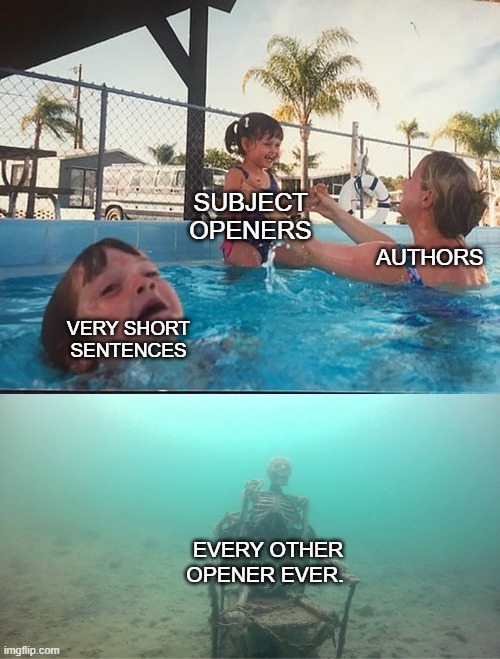
Varying Sentence Lengths
The other way authors can help to prevent choppy paragraphs is through varying their sentence lengths. When all sentences are the same length, they start to sound robotic. Readers tend to struggle with these types of paragraphs, whether they’re filled with short sentences or long ones.
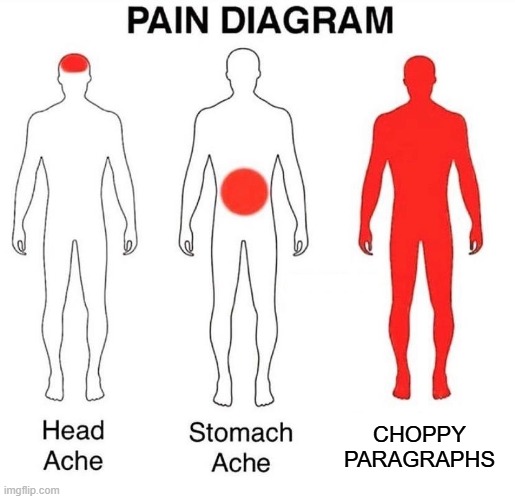
The Difference It Makes
To demonstrate the difference between choppy and pristine paragraphs, let’s take a look at two separate examples.
EXAMPLE 1:
Carol was walking to the grocery store. She got caught in the rain. She groaned as she stepped through mud puddles. Her shoes got dirty. She hated dirty shoes. This day was a disaster.
EXAMPLE 2:
As Carol was walking to the grocery store, where she intended to buy milk for her morning cereal, she got caught in the rain. Stepping through muddy puddles, she groaned several times. This day was truly becoming a disaster. To top it all off, her shoes were now muddy. Her brand new shoes. That was the last time Carol was ever going to go for a brisk walk. Next time, she’d bring her car. Clearly, nature didn’t want her to exercise.
The difference is crystal clear. One of these examples is certainly more engaging than the other. It just goes to show, choppy sentences can ruin perfectly good paragraphs. Luckily, authors can solve this issue by varying their sentence openers and adjusting sentence lengths. Not every sentence needs to sound the same. In fact, it’s often better if there’s a little difference there.
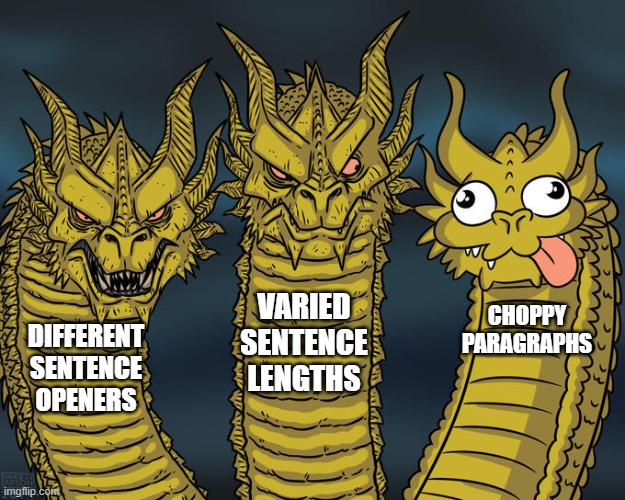
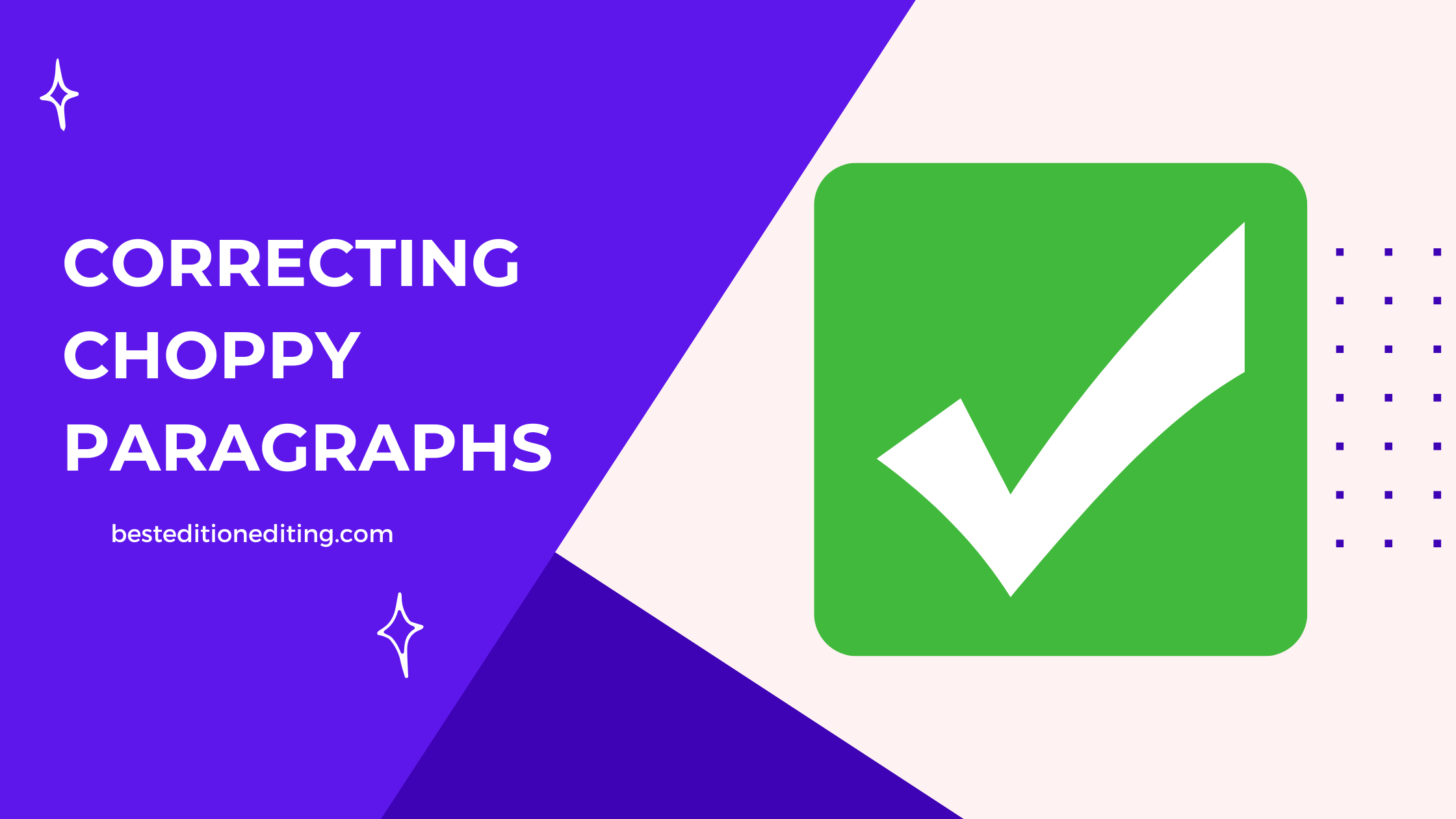
View comments
+ Leave a comment